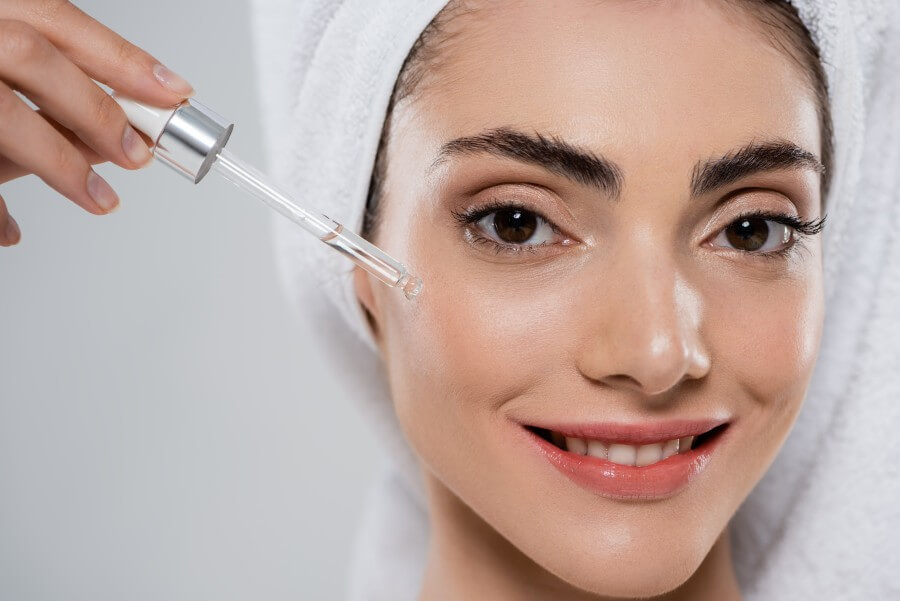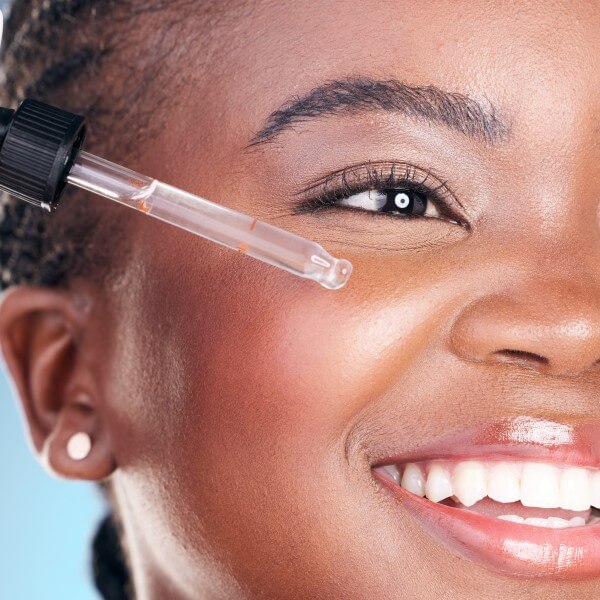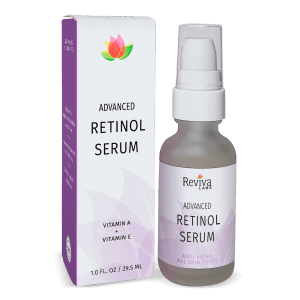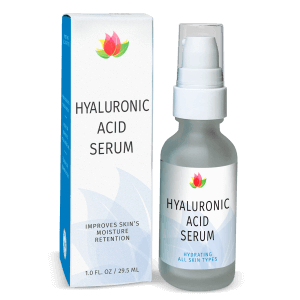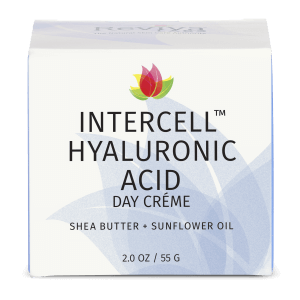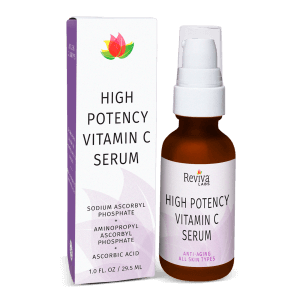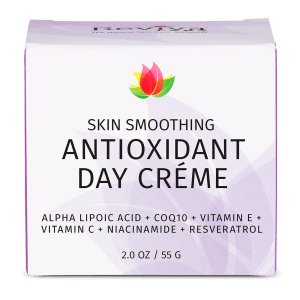Ingredients, Reviva Labs, Skin Care
Maximizing the Benefits of Retinol with the Right Ingredients
Retinol, a derivative of vitamin A, has long been heralded for its unparalleled ability to renew and rejuvenate the skin. By accelerating cell turnover, it aids in diminishing fine lines, wrinkles, and uneven skin tone. However, its potency is not without its challenges, as it can lead to irritation for some users. To harness its full potential while minimizing the downsides, pairing retinol with certain complementary ingredients can enhance its benefits and offer a more nurturing approach to skin care.
The Power of Hydration: Hyaluronic Acid
One of the key components to pair with retinol is hyaluronic acid. This moisture-binding ingredient helps to retain over 1,000 times its weight in water within the skin cells, ensuring that the skin remains hydrated and plump. When used in conjunction with retinol, hyaluronic acid can counteract the potential dryness and irritation often associated with retinol treatments. The hydration provided by hyaluronic acid is crucial for maintaining the skin’s barrier function and enhancing the skin’s overall appearance, making it appear more supple and vibrant. Reviva’s Hyaluronic Acid Serum pairs nicely with our Retinol Serum.
Soothing and Strengthening: Niacinamide
Niacinamide, also known as vitamin B3, is another ingredient that pairs wonderfully with retinol. It is renowned for its ability to strengthen the skin’s barrier, reduce inflammation, and minimize the appearance of pores and fine lines. This multifaceted ingredient not only soothes the skin, mitigating the potential irritative effects of retinol, but it also works in harmony to brighten the complexion. By promoting even skin tone and reinforcing the skin’s defensive barrier, niacinamide ensures that the reparative effects of retinol are maximized without compromising skin health.
Antioxidant Support: Vitamin C
Integrating vitamin C into a retinol regimen introduces a powerful antioxidant into the mix. Vitamin C is famed for its ability to protect the skin from environmental aggressors such as pollution and UV radiation. While it is true that vitamin C and retinol can sometimes be challenging to use together due to differing pH levels and potential for irritation, modern formulations, and proper timing (vitamin C in the morning, retinol at night) make this combination both feasible and beneficial. Vitamin C aids in the fight against free radical damage while retinol works its renewing magic, together providing a comprehensive approach to skin care that targets a wide array of concerns from aging to dullness.
Ceramides: Reinforcing the Skin’s Natural Barrier
Ceramides play a crucial role in maintaining the skin’s natural barrier and ensuring its health and resilience. These lipid molecules are found naturally in the skin and are essential for retaining moisture and protecting against environmental threats. When paired with retinol, ceramides help to mitigate the potential for irritation and dryness by replenishing the skin’s natural lipids. This combination supports the skin’s recovery process, making retinol treatments more tolerable and even beneficial for those with sensitive skin types. The presence of ceramides in a skin care routine can significantly enhance the skin’s ability to retain moisture, promoting a smoother, more youthful complexion.
Incorporating Aloe Vera for its Calming Properties
Aloe vera is well-known for its soothing and healing properties, making it an ideal companion for retinol. This natural ingredient offers a cooling effect on the skin, which can be particularly beneficial for calming irritation and redness that some users experience with retinol. Aloe vera also contains antioxidants, enzymes, and vitamins A and C, which contribute to skin healing and inflammation reduction. Including aloe vera in a skin care regimen with retinol can provide a gentle buffer that helps the skin adjust to retinol more comfortably, reducing the likelihood of adverse reactions while still allowing the skin to benefit from the rejuvenating effects of retinol.
The Importance of Sunscreen: A Must-Have Addition
While not an ingredient to be mixed directly with retinol, the importance of sunscreen in any retinol-based skin care regimen cannot be overstated. Retinol can make the skin more susceptible to sun damage due to its exfoliative properties. Therefore, applying a broad-spectrum sunscreen with an SPF of 30 or higher every morning is essential for protecting the skin from UV rays. This step not only prevents sunburn and premature aging but also ensures that the positive effects of retinol on the skin are not undermined by sun exposure. Sunscreen acts as a shield, safeguarding the investment made in skin health using retinol and other supportive ingredients.
Strategic Application for Optimal Results
Understanding how to strategically layer these ingredients with retinol is key to achieving the best outcomes. It’s recommended to apply hyaluronic acid after retinol to lock in moisture, use niacinamide in the morning or alternate nights with retinol, and integrate vitamin C into the morning routine while saving retinol for nighttime use. Ceramides and aloe vera can typically be used alongside retinol to enhance its effects and mitigate irritation. Remember, the goal is to support the skin’s health while maximizing the benefits of retinol, so listening to your skin and adjusting your routine as needed is paramount.
The Impact of Combined Ingredients on Skin Health
The synergistic effect of these ingredients when combined with retinol cannot be understated. A study published in the Journal of Clinical and Aesthetic Dermatology found that participants using a combination of retinol and hyaluronic acid experienced significantly improved skin hydration levels and a reduction in the appearance of fine lines and wrinkles compared to those using retinol alone. This highlights the importance of combining retinol with hydrating and soothing ingredients to not only enhance its benefits but also improve the overall skin care experience.
Tailoring Your Routine for Maximum Benefit
Every individual’s skin is unique, and what works for one person may not work for another. It’s important to tailor your skin care routine to your specific skin type and concerns. Starting with lower concentrations of retinol and gradually increasing as your skin adapts can help minimize potential irritation. Additionally, incorporating the complementary ingredients mentioned above can enhance the efficacy of retinol and provide a more balanced and holistic approach to skin care. Consulting with a dermatologist can also provide personalized advice and recommendations to ensure that you are using these ingredients in the most effective way for your skin.
Embracing a Nurturing Approach to Skin Care
In summary, retinol remains a gold standard in skin care for its ability to transform the skin’s appearance. However, its power is best harnessed when paired with ingredients that support the skin’s health and mitigate potential side effects. By incorporating hydrating, soothing, and protective ingredients into your retinol routine, you can achieve maximum benefits while nurturing your skin. Remember, the journey to healthy, radiant skin is a marathon, not a sprint. Patience, consistency, and the right combination of ingredients are key to unlocking the full potential of retinol.



